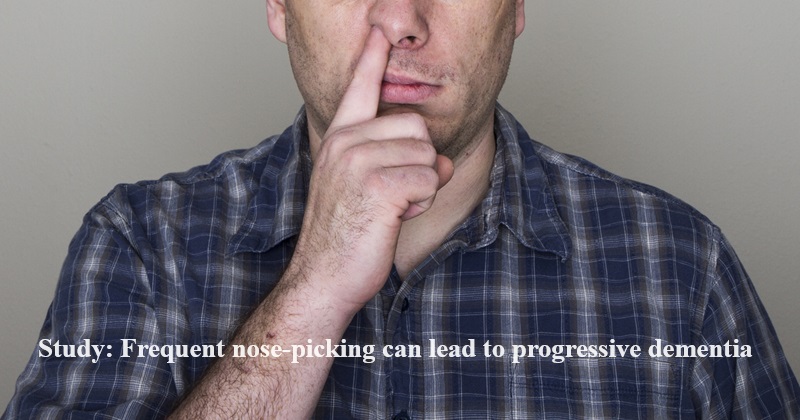
A recent study has uncovered a concerning link between frequent nose-picking and the heightened risk of developing Alzheimer’s disease. The investigation involved a comprehensive review of numerous published research papers by scientists at Western Sydney University. Their findings suggest that individuals who engage in habitual nose-picking may inadvertently introduce specific germs into their nasal cavity, subsequently triggering the brain to initiate a defense response by producing beta-amyloid.
Beta-amyloid is widely believed to be a primary culprit in the onset and progression of the neurodegenerative disorder known as Alzheimer’s disease. The researchers propose that the inflammation observed in Alzheimer’s disease could be partly attributed to pathogens gaining access to the brain through the olfactory system. The direct anatomical connection between the olfactory system and the brain, coupled with its involvement in the early stages of Alzheimer’s disease, supports this hypothesis.
Alzheimer’s disease presents a significant health challenge in the United States, affecting a considerable portion of the elderly population. According to the Mayo Clinic, approximately 6.5 million individuals aged 65 and older in the United States have been diagnosed with Alzheimer’s disease, with the majority of cases occurring in those aged 75 and above. This condition, characterized by progressive cognitive decline, represents the most prevalent form of dementia.
Globally, Alzheimer’s disease is estimated to affect up to 70 percent of the 55 million individuals living with dementia. The National Institute on Aging in the United States suggests that various factors, including age-related brain changes, genetic predispositions, environmental influences, and lifestyle choices, may contribute to its onset.
While the removal of dried mucus through nose-picking may offer temporary relief and facilitate easier breathing, the authors of the study caution against this practice due to its potential association with Alzheimer’s disease. This warning underscores the importance of adopting healthy habits and minimizing behaviors that could pose risks to cognitive health.

Post Your Comments